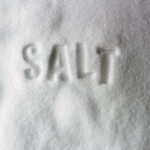New view of the risks of sodium intake on health and disease
 After more than 2 decades of warning us about the evils of too much salt in the diet, an international group of researchers looked for an association between estimated urinary sodium and potassium excretion (surrogates for intake) and cardiovascular events in patients with established cardiovascular disease or diabetes mellitus.
After more than 2 decades of warning us about the evils of too much salt in the diet, an international group of researchers looked for an association between estimated urinary sodium and potassium excretion (surrogates for intake) and cardiovascular events in patients with established cardiovascular disease or diabetes mellitus.
First, the details.
- 28,880 participants in the ONTARGET and TRANSCEND studies were included in this evaluation.
- Both studies measured death due to cardiovascular disease, heart attack, stroke, or hospitalization for heart failure in response to treatment with angiotensin-converting enzyme (ACE) inhibitors.
- 24-hour urinary sodium and potassium excretion from a morning fasting urine samples was measured.
- Associations between sodium and potassium excretion and cardiovascular events and mortality were made.
- Researchers recorded the incidence of death due to cardiovascular causes, heart attack, stroke, and hospitalization for congestive heart failure.
And, the results.
- At the start, the average estimated 24-hour excretion for sodium was 4.8 grams and for potassium was 2.2 grams.
- Higher sodium excretion at the start of the study was associated with an increased risk of death due to cardiovascular causes, heart attack, stroke, and hospitalization for congestive heart failure.
- However, lower sodium excretion was associated with an increased risk of death due to cardiovascular causes, and hospitalization for congestive heart failure.
- Compared with an estimated potassium excretion of less than 1.5 grams per day, higher potassium excretion was associated with a reduced risk of stroke.
The bottom line?
The authors concluded, “Compared with baseline sodium excretion of 4 to 5.99 grams per day, sodium excretion of greater than 7 grams per day was associated with an increased risk of all cardiovascular events, and a sodium excretion of less than 3 grams per day was associated with increased risk of cardiovascular mortality and hospitalization for congestive heart failure. Higher estimated potassium excretion was associated with a reduced risk of stroke.
Taking too little or too much sodium might be dangerous.
The exact daily recommended salt intake is still not clear, and it would probably be difficult for the average person to accurately measure how much salt they eat day to day.
What to do?
It would seem reasonable to consult with your doctor if you have heart disease, kidney disease, or diabetes. After all, your tolerances for sodium is narrow compared to the average healthy person.
For the rest of us, don’t be overwhelmed by predictions of gloom and doom made by partisans in this debate.
11/27/11 22:14 JR